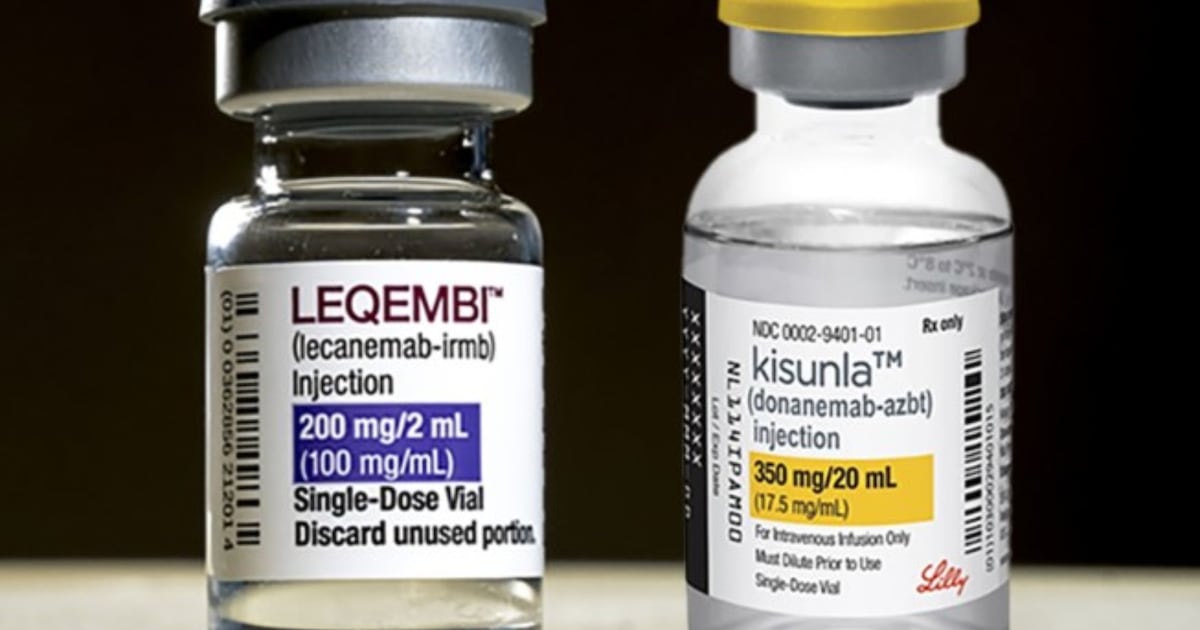Health
Alberta Man Urges Approval for Alzheimer’s Drugs Leqembi and Kinsula

An Alberta man diagnosed with Alzheimer’s disease is advocating for the approval of two new drugs, Lecanemab and Donanemab, which have already been authorized in numerous countries. Brian Bates, aged 71, from Airdrie, received his diagnosis of mild Alzheimer’s and dementia in March 2023. He believes these medications could significantly improve the quality of life for patients like him.
Bates, who previously worked as a school bus driver, described how the diagnosis abruptly changed his day-to-day life. “I was driving a school bus at the time – and I loved being around all the kids’ smiling faces – but I was just told I had to stop,” he stated. He expressed concern over his cognitive decline, adding, “I was worried I wouldn’t remember the right routes to be driving down.” His wife, Sylvia, noted that his cognitive abilities have deteriorated over time, making everyday tasks increasingly challenging.
New Hope for Alzheimer’s Patients
The medications in question, marketed as Kinsula by Eli Lilly and Leqembi by Eisai and Biogen, represent a significant advancement in Alzheimer’s treatment. Dr. Eric Smith, a professor of neurology at the University of Calgary, emphasized that these drugs are the first new treatments to emerge in over two decades. “They are not a cure, but they do slow the disease,” he explained.
These treatments function by targeting and removing amyloid plaques in the brain, a primary contributor to Alzheimer’s disease. Current medications primarily manage symptoms without addressing the underlying cause. According to research from Eisai and Biogen, Lecanemab has been shown to slow cognitive decline by 27 percent, while Eli Lilly’s Donanemab demonstrated a 35 percent reduction in disease progression over a period of 18 months.
Despite their effectiveness, Health Canada has yet to approve either drug. This delay is a source of concern for patients like Bates, who fear losing valuable time with their families. “The support of my family means everything,” he shared. “I stay positive because of them.”
Approval Process Under Scrutiny
Both Lecanemab and Donanemab have received approval from the United States Food and Drug Administration, with Lecanemab authorized in 2023 and Donanemab in 2024. The former has gained approval in 48 countries, while Donanemab is authorized in 13 nations. Yet, Health Canada remains in the review process, having received submissions for Lecanemab in May 2023 and for Donanemab in February 2024.
In a statement to CTV News, Health Canada acknowledged the urgency of effective Alzheimer’s treatments but emphasized the need to ensure that the benefits outweigh the risks. “The review process involves ongoing engagement to gather comprehensive data,” the department noted. They pointed out that while the standard review timeline is 300 days, complex submissions may require additional time for evaluation.
Dr. Smith outlined some of the factors that could be contributing to the delays in approval. He noted potential complications, such as swelling or bleeding in the brain, which can occur in a subset of patients receiving these treatments. Furthermore, the requirement for regular MRI scans poses logistical challenges, particularly given long wait times for appointments in Canada.
The financial implications of these drugs are also significant. The estimated annual cost for Lecanemab is US$26,500, while Donanemab is projected to cost around US$32,000. This raises questions about accessibility for many patients who may benefit from these treatments.
Family physician Dr. Rick Ward emphasized the importance of timely access to these drugs, stating, “The critical thing is time. We can’t wait a year or two years.” He is currently working with the Bates family and underlined that delays in approval can hinder patients in the early stages of Alzheimer’s from accessing potentially life-altering treatments.
Despite the ongoing challenges, Dr. Ward remains committed to preventive measures for Alzheimer’s. He advises patients to focus on healthy lifestyles, including balanced diets, regular exercise, and cognitive stimulation, alongside managing risk factors like high blood pressure and diabetes.
As the Bates family continues to advocate for timely approval of Lecanemab and Donanemab, they hope that their efforts will lead to improved treatments for all Canadians affected by Alzheimer’s disease, affording them a better quality of life.
-

 World3 months ago
World3 months agoScientists Unearth Ancient Antarctic Ice to Unlock Climate Secrets
-

 Entertainment3 months ago
Entertainment3 months agoTrump and McCormick to Announce $70 Billion Energy Investments
-

 Lifestyle3 months ago
Lifestyle3 months agoTransLink Launches Food Truck Program to Boost Revenue in Vancouver
-

 Science3 months ago
Science3 months agoFour Astronauts Return to Earth After International Space Station Mission
-

 Technology2 months ago
Technology2 months agoApple Notes Enhances Functionality with Markdown Support in macOS 26
-

 Top Stories2 weeks ago
Top Stories2 weeks agoUrgent Update: Fatal Crash on Highway 99 Claims Life of Pitt Meadows Man
-

 Sports3 months ago
Sports3 months agoSearch Underway for Missing Hunter Amid Hokkaido Bear Emergency
-

 Politics3 months ago
Politics3 months agoUkrainian Tennis Star Elina Svitolina Faces Death Threats Online
-

 Technology3 months ago
Technology3 months agoFrosthaven Launches Early Access on July 31, 2025
-

 Politics3 months ago
Politics3 months agoCarney Engages First Nations Leaders at Development Law Summit
-

 Entertainment3 months ago
Entertainment3 months agoCalgary Theatre Troupe Revives Magic at Winnipeg Fringe Festival
-

 Politics2 weeks ago
Politics2 weeks agoShutdown Reflects Democratic Struggles Amid Economic Concerns















